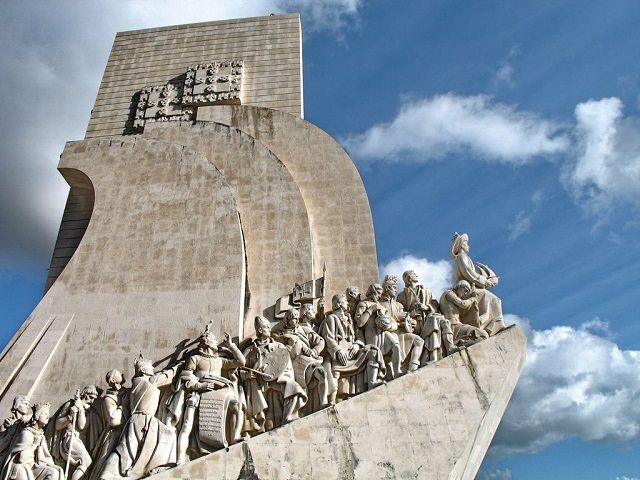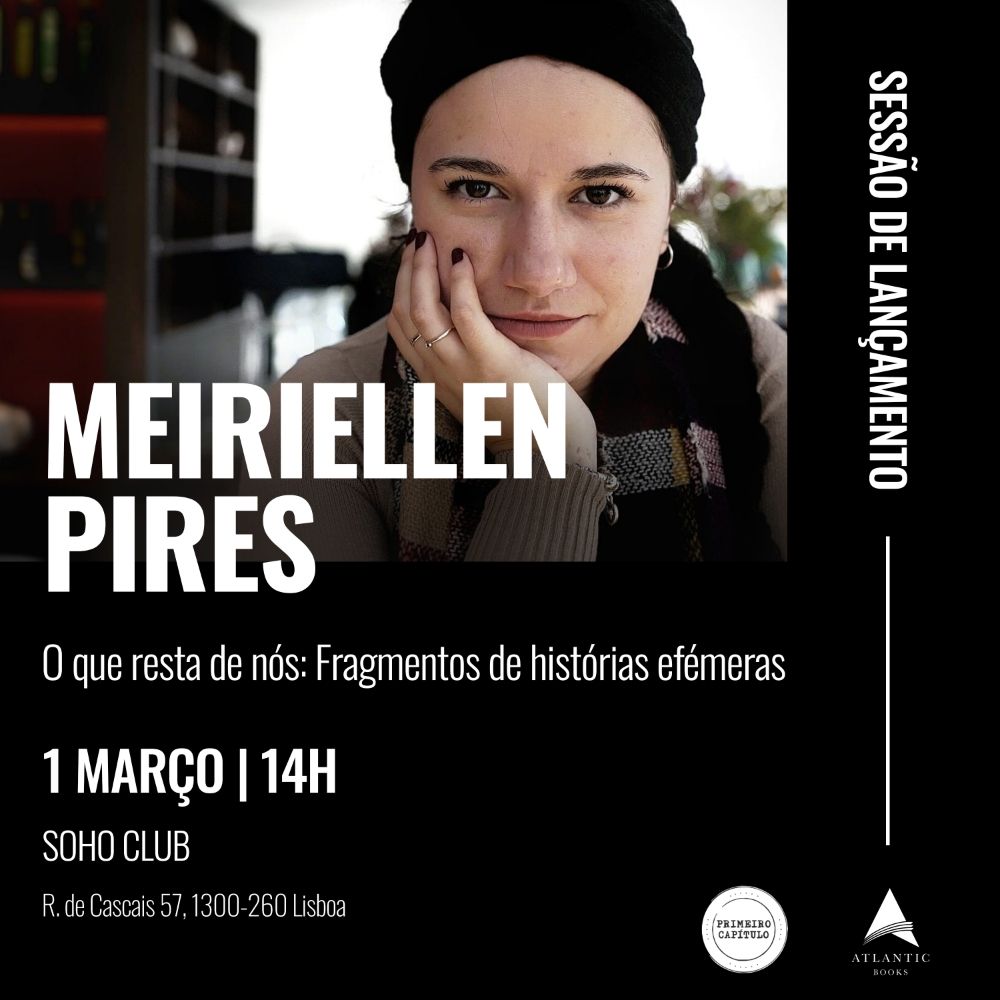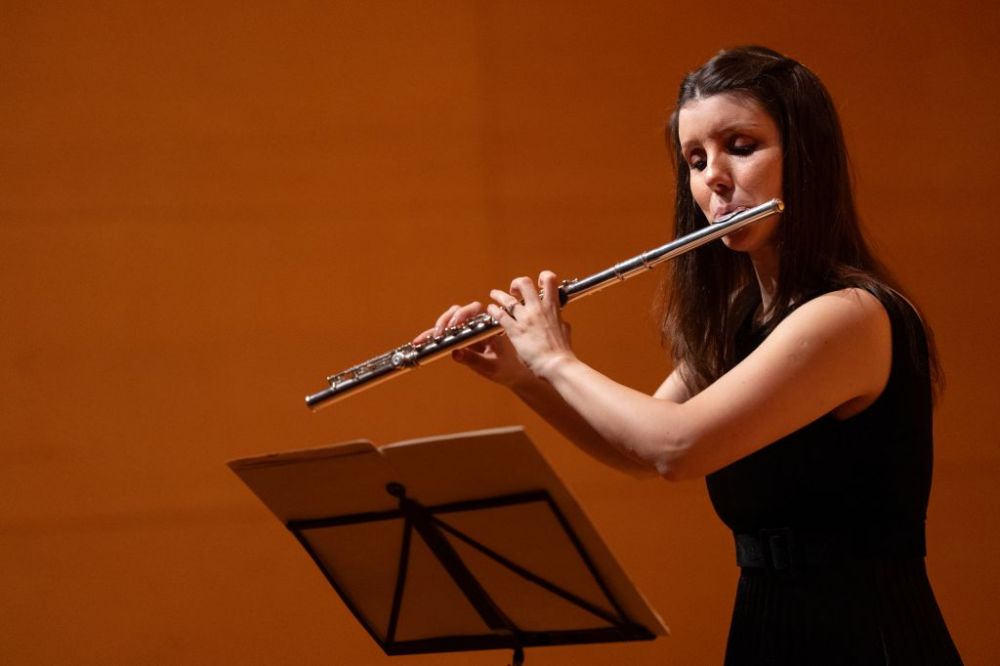Portugal visto por escritores estrangeiros
What I Saw There
by Patricia M. Bindert

I came to Portugal knowing nothing about Portugal except what Sister Fabian wrote on the board when I was in fourth grade in 1956. Of her beautifully handwritten notes that we were to copy into our notebooks, I remembered nothing but the name of Vasco da Gama. And so it was last summer that I came for the Disquiet International Literary Program, alone, a week early to get my bearings, to see what there was to see and know what there was to know before I returned to the Lakeshore Villas Over 55 Mobile Home Park.
I met a people who still see themselves as explorers, full of excitement to pursue what might be across the water, what it might be possible to express in rich, experimental sentences. Go to the sea and there is a horse and rider, their asses facing the land—they are looking outward. Go to the bookstore and there are authors writing of impossible things in paragraphs without end—or capital letters.
What does this suggest? When I heard the Portugese speak of their explorers, I realized that as Americans, we expect ourselves to be full of guilt over the lands we and our ancestors settled and damaged, over the people we have displaced or killed or enslaved. The Portugese have none of this. Their mission in the human world was to explore, lead the way and pat us on the fanny with a wish for best as we made our way across to our islands and continents. Like good parents, they set us out on our journey with encouragement, but it was up to us, the new inhabitants of the “new” world to make the journey our own.
And now we come to visit Portugal, and they kindly offer us sardines and pastry and music that expresses the grief over what might have been. The Portugese have never been paralyzed by suffering--instead, they create.
It is as if that early spirit of moving outward to new waters prepared the population of Lisbon for the great earthquake. Moving from out and under, seeing the possibilities of a new city, even as loved ones settled their bones under the rubble of the old, most remained faithful to a God who could drown them at sea or bury their children on land. This is a cynical faith, a radical determination; the Christ’s on the altars of Lisbon are not as bloody and tortured as those on the altars of Seville; the people of Portugal have absorbed archetypal suffering. They do not need to believe a God has suffered more than they, or that a God has given to mankind less hopefully and generously.
My visit was extraordinary. Disquieted, I was led to consider my own psyche and all that the seas, joys and catastrophes of Portugal could teach it about itself. I was led to wonder at how much larger the world was to me because I had been to Portugal.
by Patricia M. Bindert

 Divulgue aqui os seus eventos
Divulgue aqui os seus eventos












